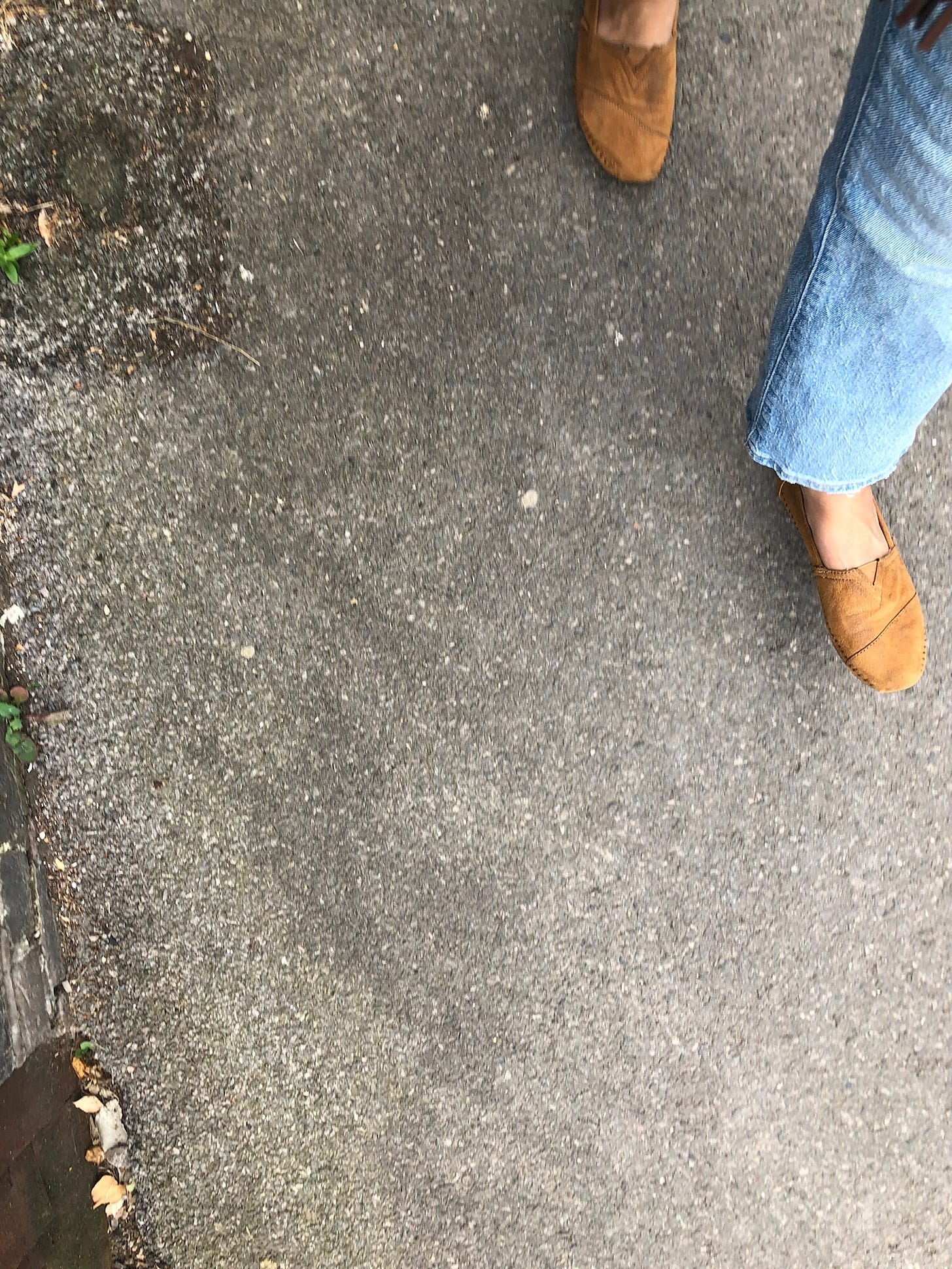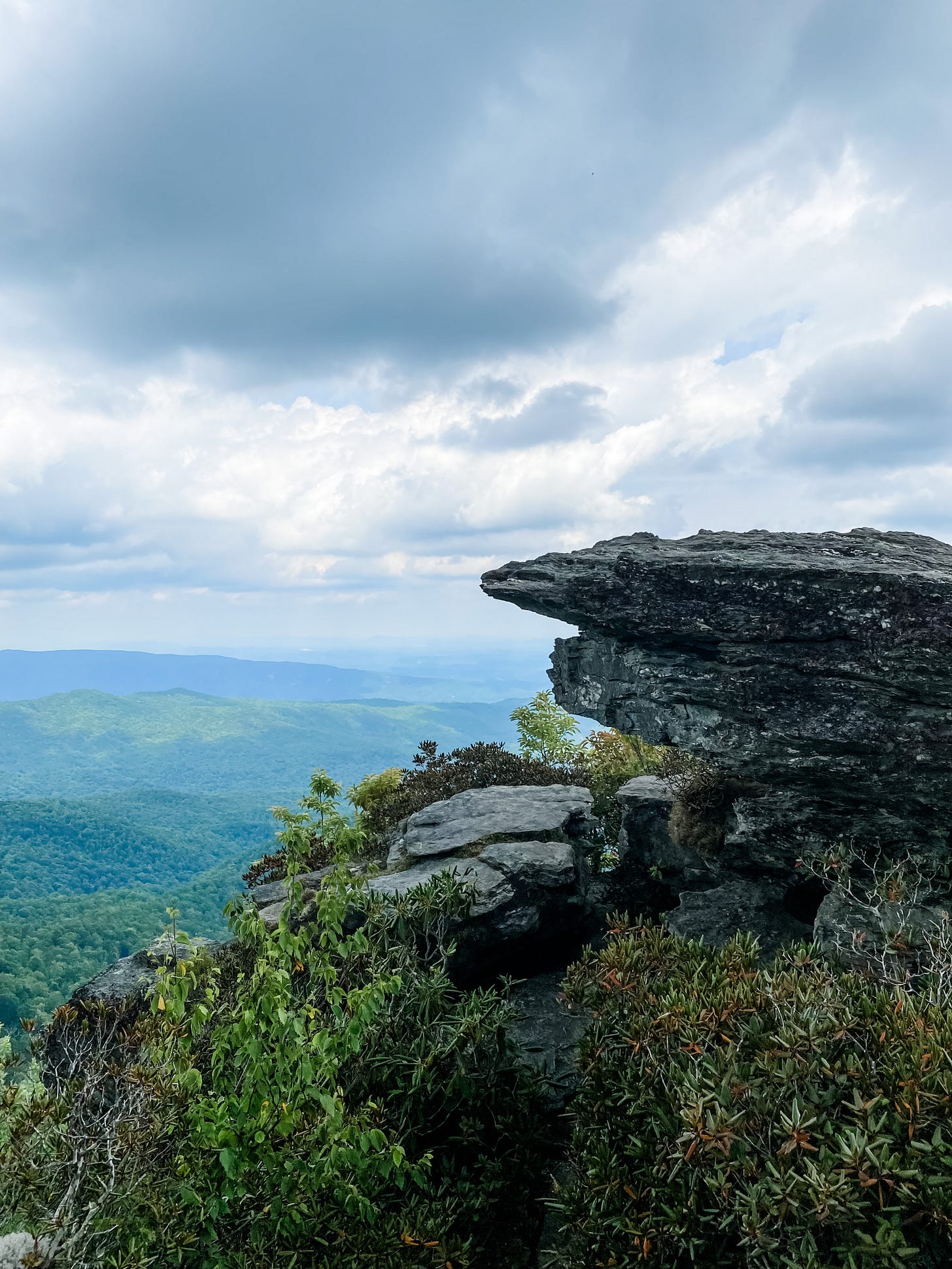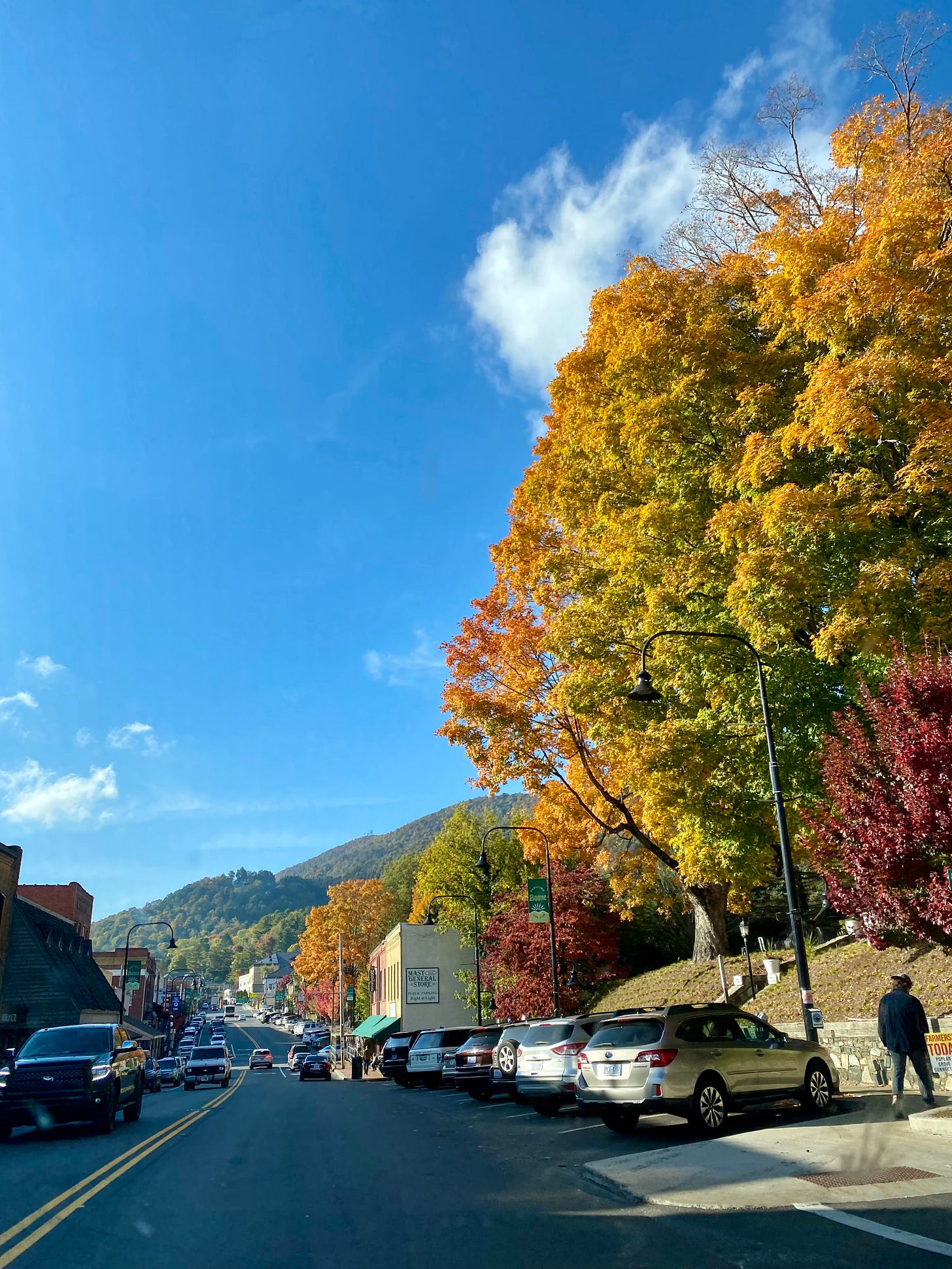Helpers Needed Now and Later
A reflection from North Carolina on 3 things to do when the unthinkable keeps happening
The western part of my home state of North Carolina is desperate for help after the worst flooding in recorded history. So many have showed up in the immediate after-math of this storm, but as the rescue efforts continue they face a long road to recovery.
If you’ve felt overwhelmed at how to help or where to start, consider supporting Water Mission (providing generators and safe water) and/or World Central Kitchen (delivering water and fresh food to hard-hit areas). If you aren’t able to offer support financially, there are other ways to be a neighbor! Let’s talk about it.
—Teresa of Avila (1515–1582)
Christ has no body but yours,
No hands, no feet on earth but yours . . .
If you’ve read our story then you know we have continued to move to the healthy, sometimes painful, always human rhythm of leaving rooms and finding new ones. We’ve found our place and lost it again several times over. But one room that has always remained is the room of listening.
It’s the thing that makes the most sense to me. It’s what I know how to do.
Not in an expert kind of way but in an “I come by this naturally and also have been honing my listening skills for decades through schooling and practice and lots of start-agains” kind of way.
But do you want to know what feels like a useless skill in the midst of a natural disaster where people need water and electricity at best, rescuing and life-saving care at worst?
I’ll give you one guess.
Yours are the eyes with which he looks
Compassion on this world,
I’ve been clenching my jaw for over a week.
First it was the delayed flight out of Atlanta to Kansas ahead of Hurricane Helene, then it was three speaking responsibilities in three days time. It was travel and meeting new people and lots of conversation. It was having a good time and missing John and anticipating all the work I had to do when I got home.
On Thursday, we knew the hurricane had strengthened and was headed for landfall. I was concerned for our friends in Florida but didn’t know to also be worried about my college student daughter in Boone, North Carolina. If it were a blizzard? Sure. But a hurricane coming in all the way from the Gulf did not seem to be a threat. Appalachian State University is nestled up in the Blue Ridge Mountains. Deep concern was not on our radar.
We were so wrong. We didn’t have an imagination to comprehend the level of devastation possible when a tropical storm dumps record-breaking levels of water on mountain terrain in an area where all the roads follow the rivers.
In Kansas, after my speaking responsibilities were over on Saturday morning, I went back to my hotel room for the afternoon, laid flat and grabbed my phone, the first time really checking news all weekend. That’s when I began to understand how terrible things were in my home state.
I learned that though many of the streets and side roads in Boone flooded, they did not get the worst of it. My daughter Stella was able to get out of town because she lives near the highway, one that remained intact. She was out before I even knew how bad it was.
How bad it still is. Christ have mercy.
Yours are the feet with which he walks to do good,
Yours are the hands, with which he blesses all the world.
As of yesterday, they’re asking people not to travel to Western North Carolina: only residents and organizations trained for first response (that broad directive may have changed by now and doesn’t apply to those who want to officially volunteer. For example, you can register to be a volunteer with World Central Kitchen right here).
As it turns out, so many of the people who live there are the first responders. They are both the victims and the helpers.
It’s been a week now and we’re carrying loads of sadness as stories continue to come to light of friends who can’t get home, people who have likely lost everything, families cut off from needed resources and communication. The scope of the loss of life is so high already and likely to climb.
So what can we do when the unexpected and unthinkable keeps happening?
We acknowledge what has changed.
Even though Greensboro remained largely untouched by this storm (minus some wind, rain, and one day without power), I have to keep reminding myself that things have changed. Though our schools are in session, our homes are intact, our life continues as “normal”, things are not actually normal.
October is the most beautiful season in the Blue Ridge Mountains, just an hour and a half drive from our house. We spend time there many times a year, especially in autumn. But both the parkway and national parks are now closed, many of the small towns that rely on tourists visiting have been washed away, and we still don’t know the full scale of the loss.
We remember to practice patience and compassion.
If we are not one of those directly impacted by tragedy (whether it be a natural disaster like this one or something else terrible), it can be easy to think we “should” be able to get things done as usual: to be productive and tackle that to-do list and be our regular selves. But holding a human awareness of struggle and being people who allow our hearts to break open to it means we will not be able to do our work with the same level of clarity and energy as before.
This is as it should be. There is nothing wrong with you if you feel distracted, sad, and aimless. Don’t let your distraction shame you. Let it be a reminder that this is what it feels like to care.
As Sharon McMahon reminds us in her (#1 New York Times bestselling!) book, The Small and the Mighty:
“Every experience you’ve had, every setback and heartbreak, every triumph and joy, will all be used. The character that you’ve been cultivating will be called upon, and when that moment comes, where it is, I hope you’ll rise to it.”
We do what we can, not what we can’t.
We can’t change the situation, restore power to entire communities, or make all of this go away. But we can support those who can. We can always do one small next right thing.
App State won’t resume classes until at least October 16 (and perhaps not even after that, we don’t know.) Stella (who is a current junior there) has said to me multiple times, I don’t know what to do now.
And yet, at the same time, she’s organizing a craft night here in Greensboro for locals and also fellow App State students to gather next week and write letters to high country first responders - to encourage them for the long-haul.
I am not a first-responder. But I am a listener and you can be, too. The needs of our communities, whether here in North Carolina or the unique needs that arise where you are, require that we all know our gifting and act accordingly.
Thank God for the first responders doing their good work.
We’ll send our prayers and our money and our donations and our time. And then we’ll be the second, third, and the one hundredth responders in their wake.
Eventually, we’ll be the listeners, here on the other side.
And we’ll learn from and care for the survivors. We’ll validate their questions, hold up their arms as they lament their losses, and sit at their feet as they teach us what resilience looks like.
Yours are the hands, yours are the feet,
Yours are the eyes, you are his body.
Christ has no body now but yours,
No hands, no feet on earth but yours,
Yours are the eyes with which he looks
compassion on this world.
Christ has no body now on earth but yours.—Teresa of Avila (1515–1582)
Note: I’ve left most of this post public but this final bit is more personal. I don’t have a paywall to keep people out but to offer myself a bit of a boundary for what is for the whole internet and what is just for those who have a bit more invested in this space. If you can only afford a little, I encourage you to instead donate to relief efforts in Western North Carolina (linked above). If you want to be here, we want you here. We offer free annual subscriptions for anyone who asks. You can go here to learn more.







